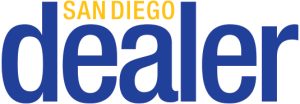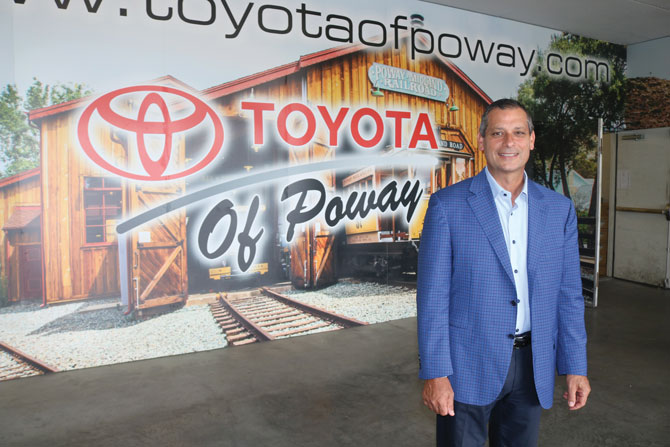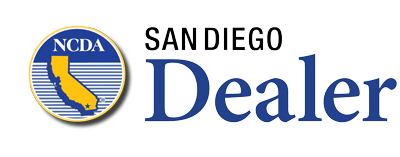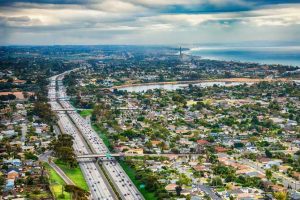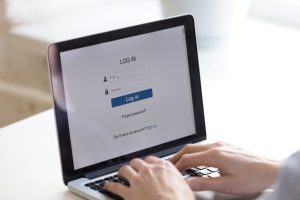What made the auto industry your career of choice? You came from Louisiana; that’s quite a ways from San Diego; how did that happen? Why San Diego?
My best friend since the first grade — Troy Duhon — started selling cars because his father was a General Manager at a local dealership in New Orleans. I was working at a Sears automotive shop, Troy was selling cars, and when we would compare paychecks, my eyes were opened! I told Troy to get me an interview at the dealership, and 37 years later, here we are with eight new car dealerships and growing.
I saw some early success in the car business, and when I graduated from college, I decided to stay in the business and give it a go. I worked my way through management at several stores, and eventually when Troy bought Toyota of New Orleans — his first dealership — I became the GM. We did well, earning numerous Excellence awards as well as Toyota’s Presidents Award.
After Katrina in 2005, it became apparent that we needed to expand outside of New Orleans. Opportunities in New Orleans were limited; we knew that, and we needed to spread out our asset base. In 2008 – yes, at the beginning of the housing crisis – we had the opportunity to buy a Toyota dealership in Poway. Opportunities like that don’t come around often, so we needed to act on it, which meant taking a leap of faith and me moving to Poway. My wife and children followed after the school year ended.
Troy and I have worked together for 37 years; we’re friends and business partners. Over the years, we have acquired eight dealerships together.
You moved to San Diego in 2008. How has your life and the business changed since then? Has the move been everything you thought it would be?
I definitely leapfrogged into this life, if you will. I arrived first when we acquired the Poway store. My family was very supportive. I met my wife in 1989 when I sold her a car, so she knows the business. She and I both grew up in this industry — and she understands the sacrifices of time and commitment it takes to be successful.
Even in 2008, the auto industry in California was very different from the one in New Orleans. The West Coast led in digital marketing, even back then. I was able to pass a lot of good practices on to our group of dealerships back in New Orleans.
The move has been everything I had hoped for and then some. I love California. Before the move in 2008, I had never visited this part of California, so I had no idea what to expect. To be in a bedroom community marketplace means that you are truly part of the community. The local community embraced us from the start. We love it here.
We also have dealerships in Carlsbad, Buena Park, and in Seaside (Monterey Bay Area) — all equally wonderful places.
As an industry, I suspect that we will see technology become front and center in just about every dealership department, which doesn’t mean that relationships will necessarily suffer, but I do think that as technology grows, we as dealers will need to emphasize relationships more.
Describe your educational background. What did you study?
After graduating high school, I attended the University of New Orleans, where I earned a Bachelor of Science degree in Business. I worked my way through college as a salesperson for a local Toyota dealer. I was 20 years old at the time, and I’ve worked in the industry pretty much ever since — 37 years. They say once the car business gets in your blood, you can’t get it out. I would have to agree with that.
Are there any specific individuals who had a major impact on your career?
My wife, Lourdes, has played a big part as well. She has been extremely supportive over the years as I built my career in this business.
My partner, Troy Duhon, was the youngest first-generation Toyota dealer in the U.S. I had front row access to running a dealership. And there have been colleagues and managers that I learned from — what to do and what not to do.
The auto industry is not an industry where you do it on your own; it’s a team effort. You need to find mentors, develop and work with a great team, and be aggressive in stepping up when a learning opportunity presents itself.
What is the most rewarding part of your career?
The relationships. The access to many friends. It’s the people part. Being able to help our associates grow. We’ve had six executive managers that have gone on to become partners. Watching their dreams come true is the most rewarding.
What do you think will be some of the auto industry’s dominant trends in the next five years?
I think to some extent, the pandemic inadvertently set the stage for future trends that may or may not have ever happened to the extent I believe we will see them now. For instance, the way in which people will buy cars — more at-home auto purchases, more at-home deliveries, streamlining of the sales process — will become more normal. I suppose you might call it “a more Amazon type of way.”
As an industry, I suspect that we will see technology become front and center in just about every dealership department, which doesn’t mean that relationships will necessarily suffer, but I do think that as technology grows, we as dealers will need to emphasize relationships more.
I also see the market gravitating toward EV. The more we go into it, the more confidant I am that the franchise model will continue to play a big part in how cars are sold. The franchise system is still the best way to sell cars.
Why is it important to be an NCDA member? What makes it beneficial?
When I first came on the board, I wasn’t sure what to expect. Being a part of the NCDA has made me aware of the legislation in California — it’s important to be aware of the laws, and there are a lot of laws to be aware of. Knowing and understanding the State’s rule and laws is very important. The NCDA helps me and other dealers stay abreast of changes and also gives us a collective voice.
Since being on the West Coast, I’ve learned that digital advertising works. The online community-type marketing creates relationships. The West Coast is very tech-savvy.
I look at membership in NCDA and CNCDA as educational and prevention planning. These organizations do a lot of heavy lifting, so we, as dealers, can focus on our day-to-day operations.
Are you involved in any civic or charitable organizations?
My partner Troy and I have always shared a philosophy that profit needs to come with a purpose. We’re very involved in the community. I think as business owners, we need to give back.
For our dealerships, it’s a way of life. Here in Poway, we sponsor many high school activities, we give to the San Diego Center for Children, and we sponsor the Lake Poway 4th of July Fishing Tournament and the Summer Concert Series as well as the Marine Scholarship Foundation.
We’re also supporting the San Diego Food Bank. The work they are doing is so important — sadly, the need is so big. My family is also very involved with our church, St. Michael’s Catholic Parish.
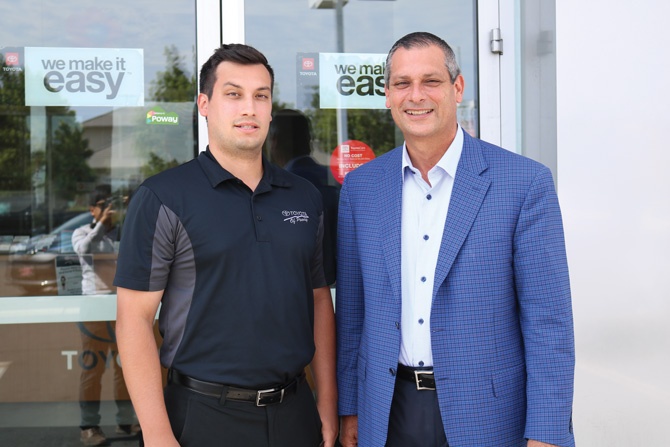
The auto industry is not an industry where you do it on your own; it’s a team effort. You need to find mentors, develop and work with a great team, and be aggressive in stepping up when a learning opportunity presents itself.
What’s the secret sauce for you in running a successful dealership?
I think that this is true for any organization — and certainly ours — it’s the people. If there is a secret, it’s spending the time and getting to know your people. It’s instilling your company’s culture, philosophy, and energy into the day-to-day that makes the difference. It’s what makes the whole operation authentic from the top down. Everyone’s on the same page as to what is important. I think it’s paramount in streamlining what you are truly trying to accomplish. The better understanding, the more successful.
If you look back at your career and life, what would be three things you have learned that you would pass onto a younger member within the auto industry?
This is a question that certainly hits home. My son Michael is 26 years old, and he is just starting in the business. The opportunity of mentoring my son is absolutely a wonderful experience for me.
Here’s what I have told him:
- Always take care of the customer.
- There aren’t any shortcuts to success in this business — gain as much experience as possible because that is what you will need to rely on in the future.
- Always learn — be ready to adapt to new and better ideas, processes, and be agile.
How did you weather the pandemic storm?
Well, I think it falls back on being agile, thinking fast on your feet. However, I credit our people — our team members, our customers, and industry partners for helping us be agile. The past year or so has been a moving target.
The low point was, of course, when we furloughed our staff because we had to stop sales. Getting our people back during such uncertain times was stressful — for them and for our leadership. The most important thing was making sure everyone was safe and comfortable, and our people showed up, determined to make the best of the situation.
There’s been a lot of uncertainty — I think that there still is to some extent. I am not sure that we can all breathe a collective sigh of relief yet. It’s better, so much better. We’re very low on vehicle inventory, but, on the positive side, the demand is there.
The conditions for the industry are fantastic — interest rates are low, the average consumer’s car is about 13 years old, so there’s a demand for new vehicles, and the consumer’s mindset, after the past year, is that they are ready to buy. All of this is positive.
What is the takeaway for you from the pandemic that will guide your future business decisions as a small-business leader?
The takeaway from any adverse situation is this: take care of your people in good times, and they will take care of you in bad times. That is what stands out.
I have a different perspective than most small-business owners and most dealers. My partner, Troy, and I have several dealerships in Louisiana — New Orleans, specifically — and in 2005, when Katrina hit, we lost 1,200 cars and 65% of our market. Everything we had worked for was mostly gone. We had OEMs questioning whether we should even open back up.
A month after Katrina — one full month after — we still didn’t have cellphone coverage. It was nonexistent. I remember taking a yellow legal pad and writing down telephone numbers and spreading them out on a table, so I could call our people and check up on them as we could.
Both Troy and I had a sort of dress rehearsal ahead of last year. The whole country saw the aftermath of Katrina, but we experienced it. I think there is a certain skill set that is developed from really tough times and you learn very quickly what’s important – and it’s this: the goodwill you have developed from your interpersonal relationships, from staff to customers. At the end of the day, without people, you won’t have a business.
Katrina and what we learned — that set me up for COVID-19. First, take care of people. Appreciate them — let them know you appreciate them.
And then, after Katrina, we had the opportunity to broaden our business to California in 2008. Those were tough years in the auto industry; 2008, 2009, and 2010. I remember going to dealer meetings and hearing over and over that the sky was falling. I remember thinking, you have a market, people are working, you have inventory. My perspective is different, and I think it will always be. I got my skillset from Katrina, and it’s served me well, first in 2008 – 2010 and again as COVID-19 spread and things shut down.
What do you foresee as industry challenges in the next five years?
There will be disruptors to the industry; there have been and will continue to be. I think the biggest will be the assault on the franchise business model. I think we will have to be diligent in our support of NCDA to make sure that the franchise laws hold.
That’s one of the biggest reasons to become a member of NCDA. They are the ones on the front line, fighting the good fight for all of us. Our voice is much stronger when we come together, as a member of NCDA.
Describe your all-time favorite vehicle (it can be one you’ve owned or something on your wish list). What are you driving now?
One of my favorites — it took me seven years to locate it — is my 1971 Toyota Landcruiser, with the original engine. It’s fun to drive on weekends. I would love to get the new Corvette, Chevrolet’s latest generation of Corvette. But the demand is so strong that I just can’t!
Tell us about your family.
My wife, Lourdes, and I have three children, Michael, who is 26; he graduated from ASU and returned to Poway to work at the dealership — learning the car business and is doing really well. There’s a lot of car talk around the dinner table! We also have two daughters — Alexis who graduated from SDSU, worked with us at the Poway dealership, and now works for an international tech company. Allyssa, our youngest, is working part-time at the dealership while in college. She is starting at the University of San Diego this fall. Lourdes and I are really blessed; our kids are really great, all healthy, and we are a very close family.
What is your favorite way to spend your free time? Any unusual hobbies?
Nothing unusual. I like to golf, golf and golf. It’s a big part of my development in the car business. Contacts and relationships. It’s a wonderful game. Teaches life lessons, and it’s a great way to decompress. I also love to spend time with my family.
